Installation
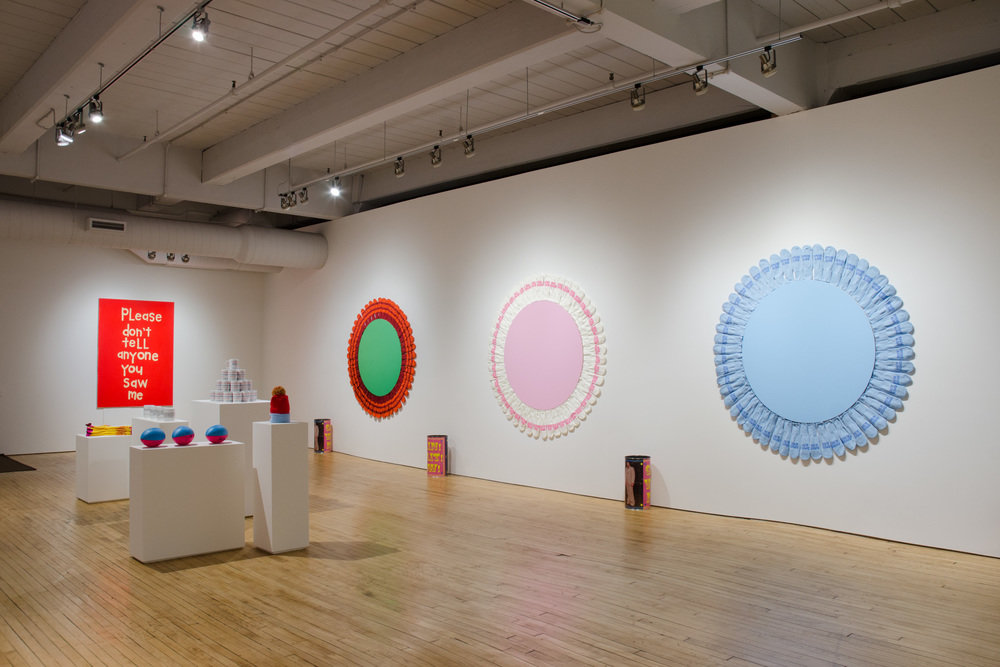
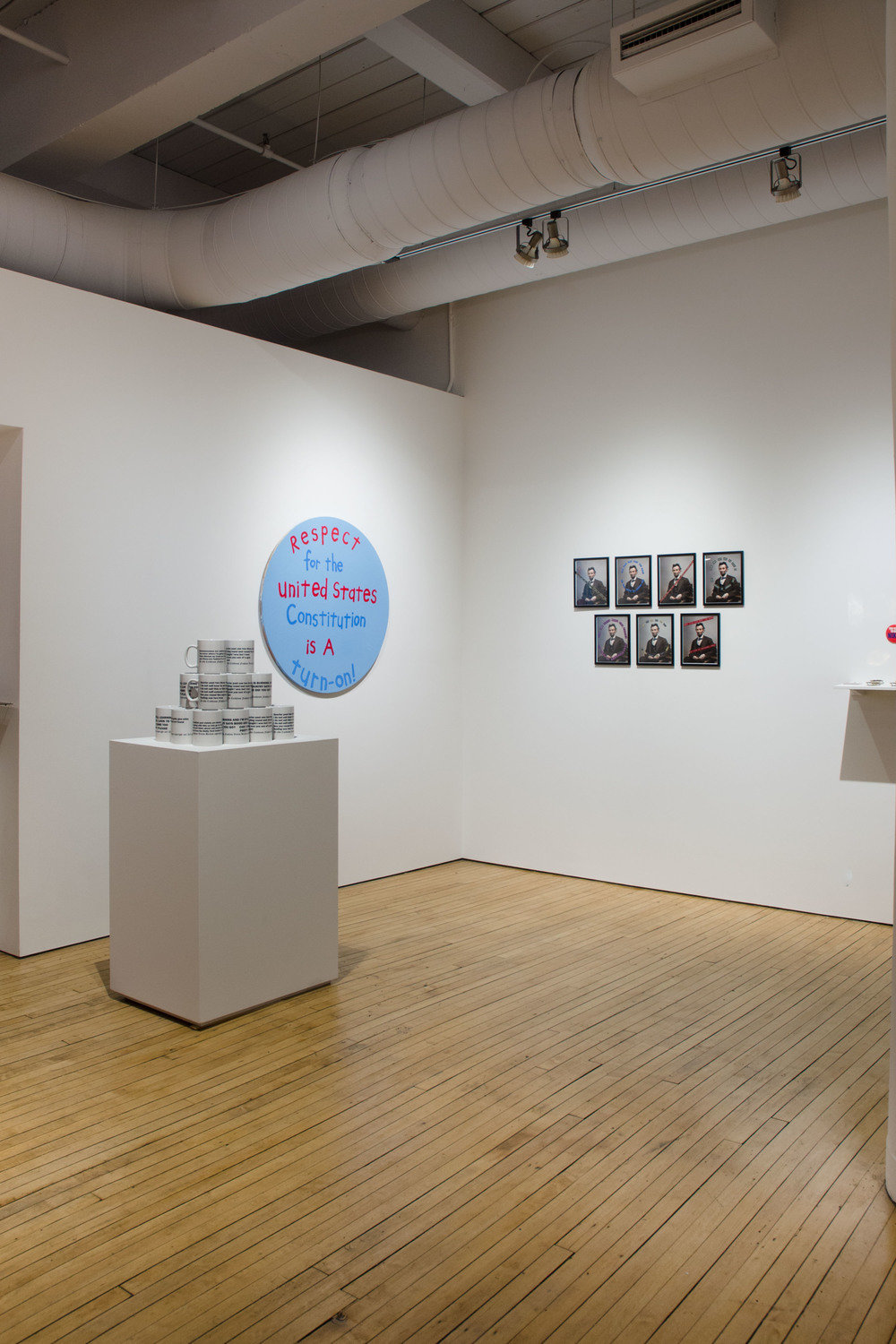
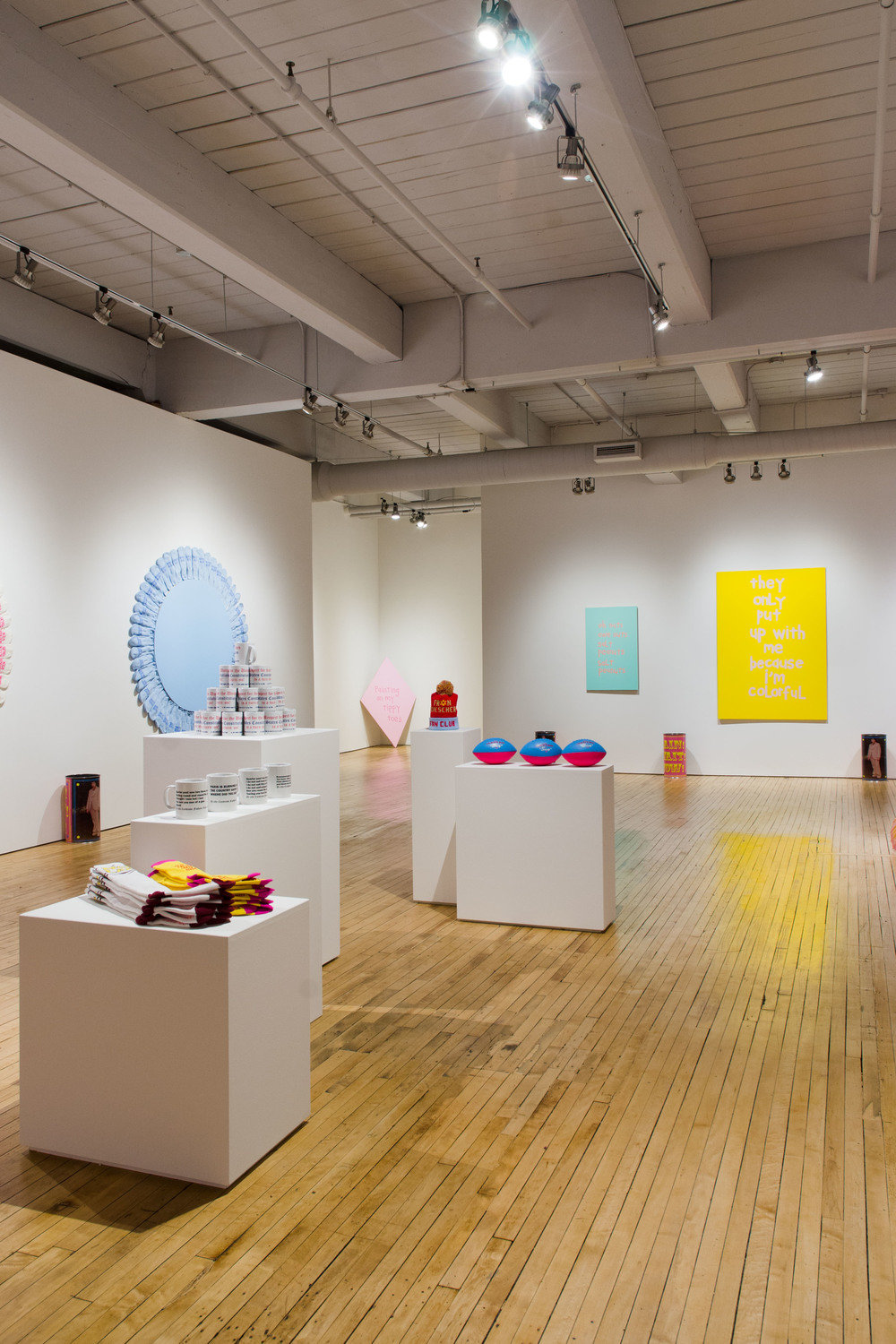
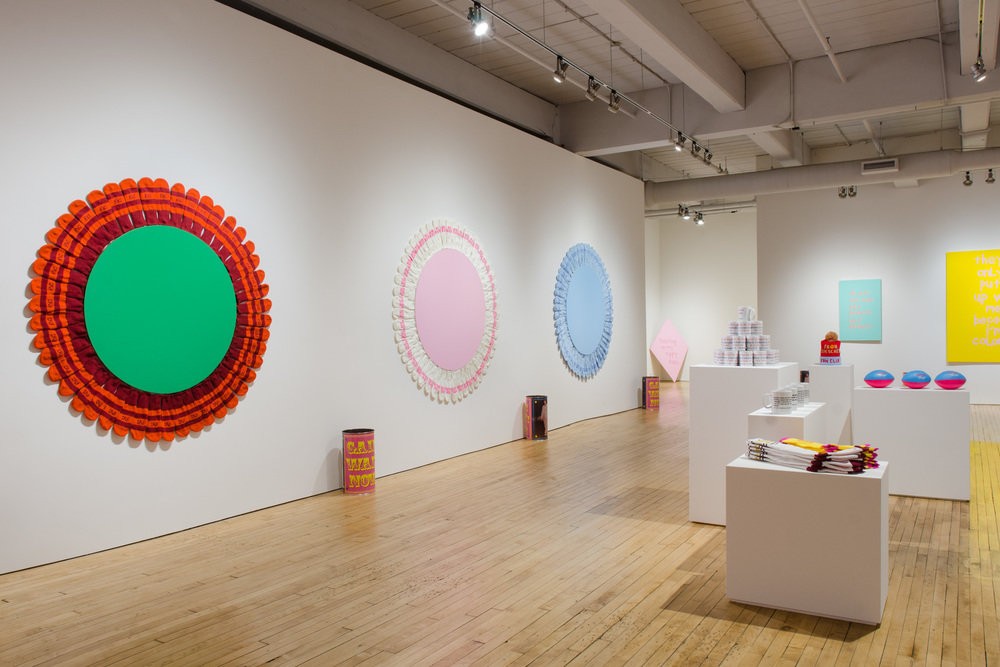
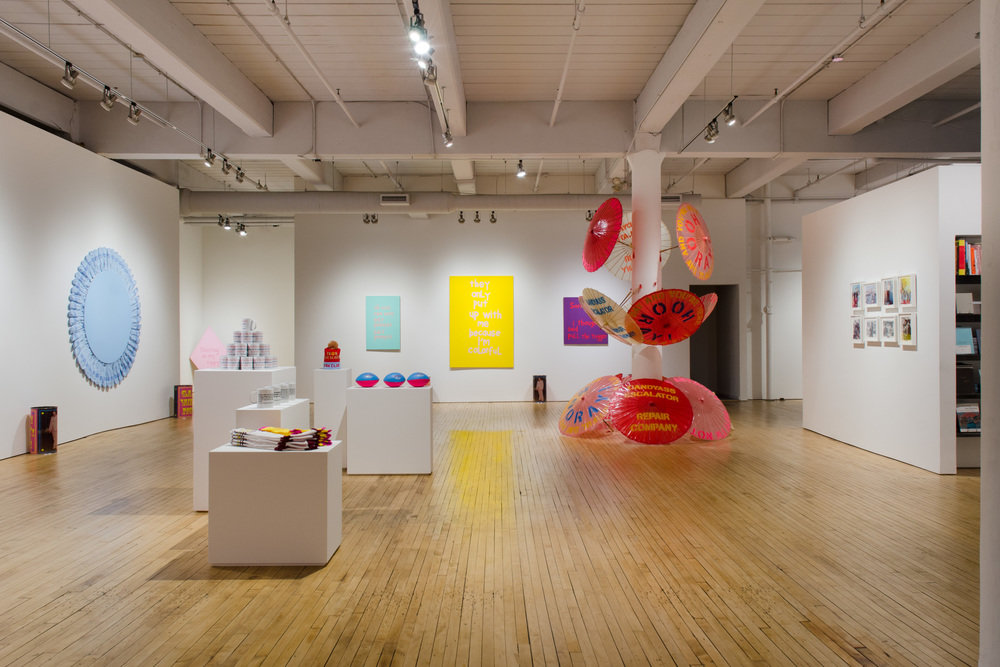
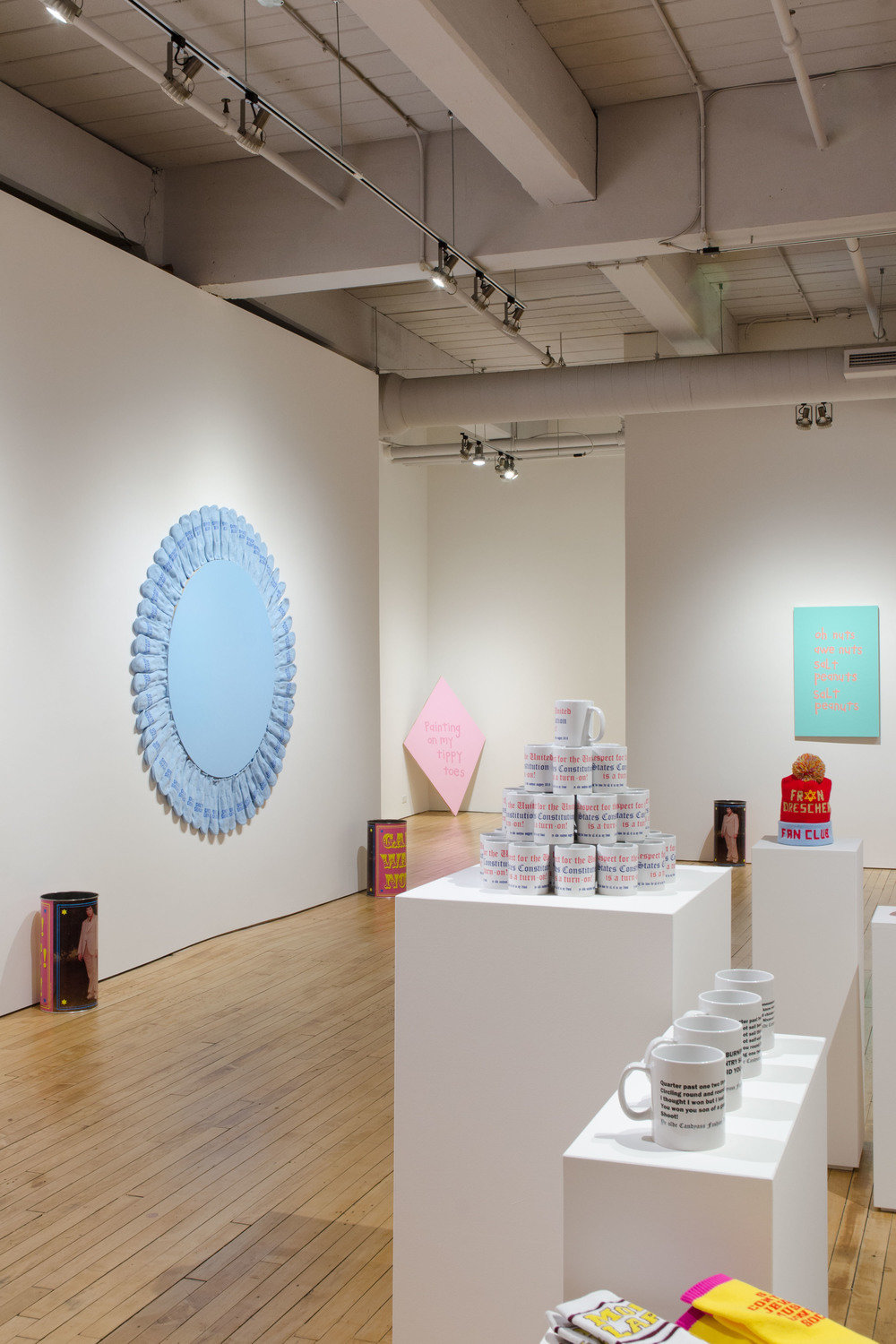
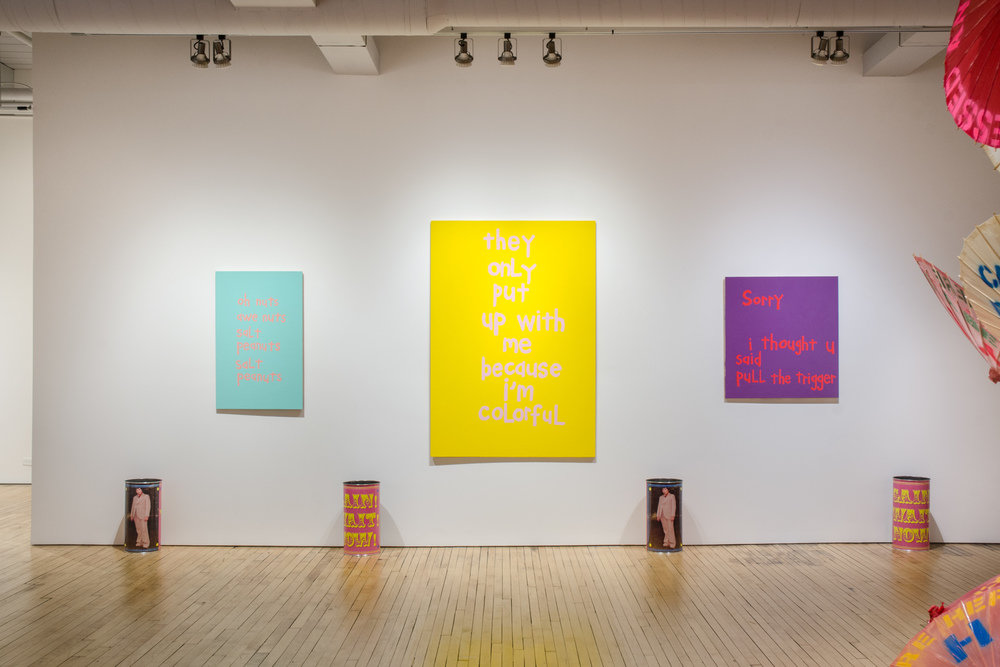
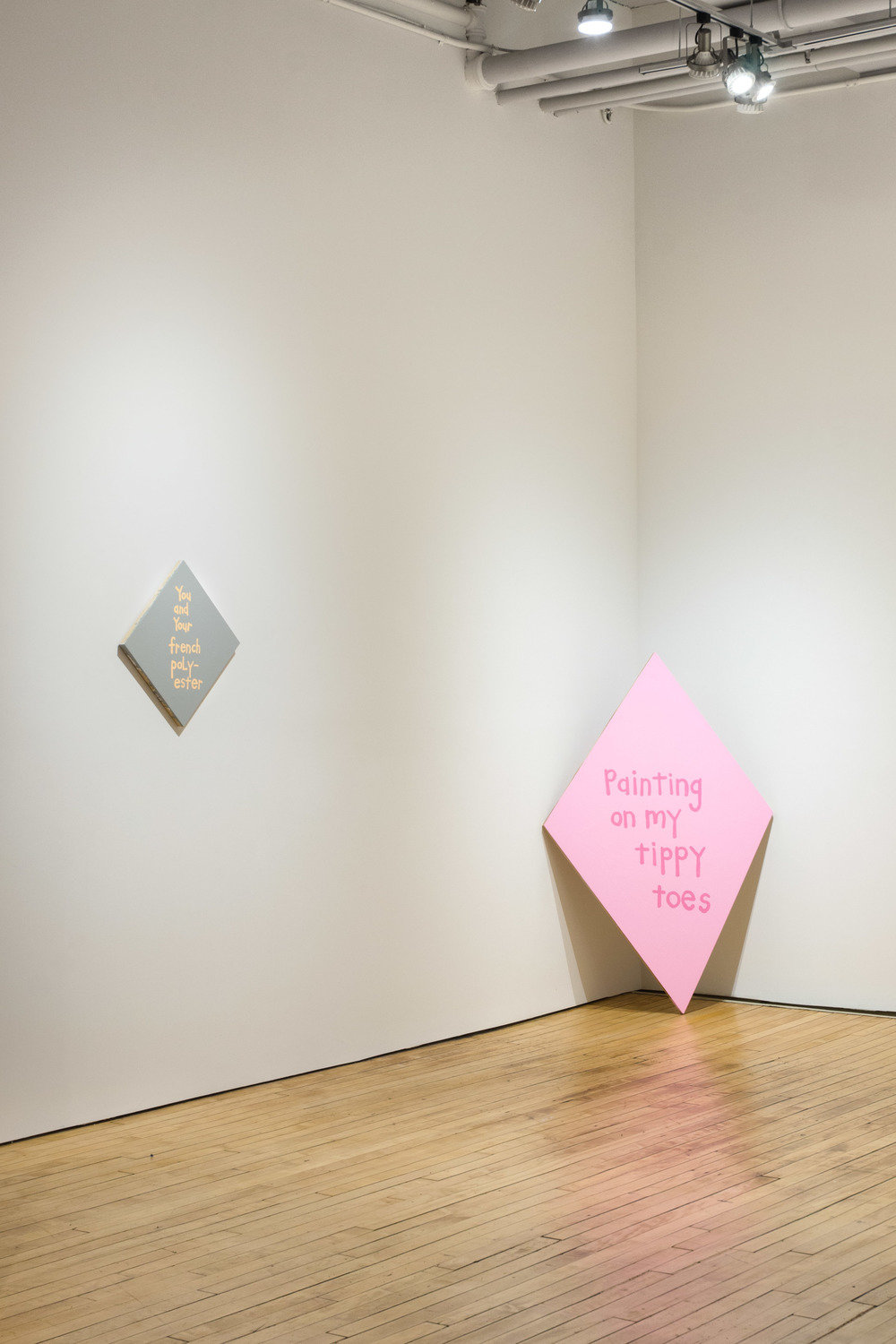
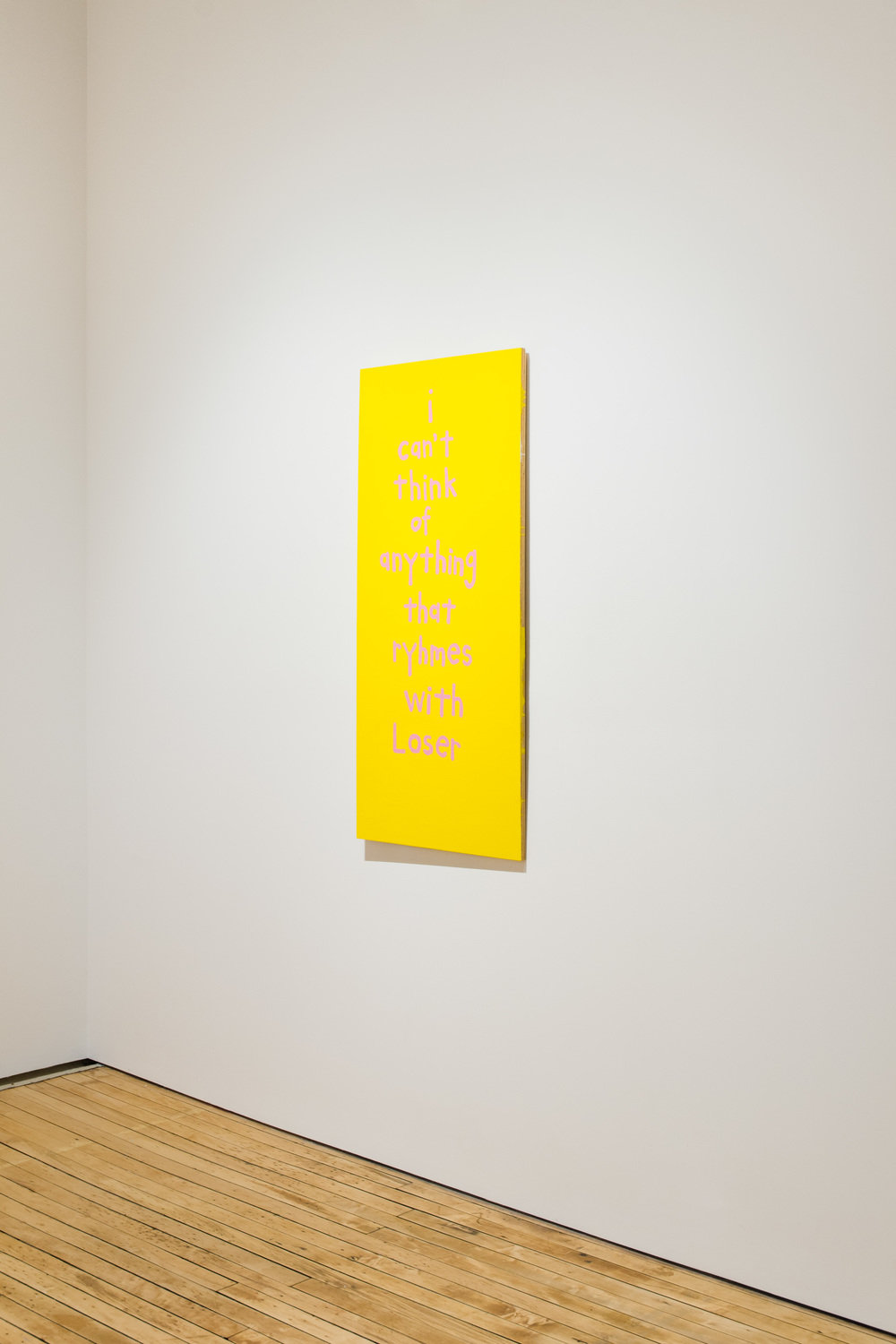
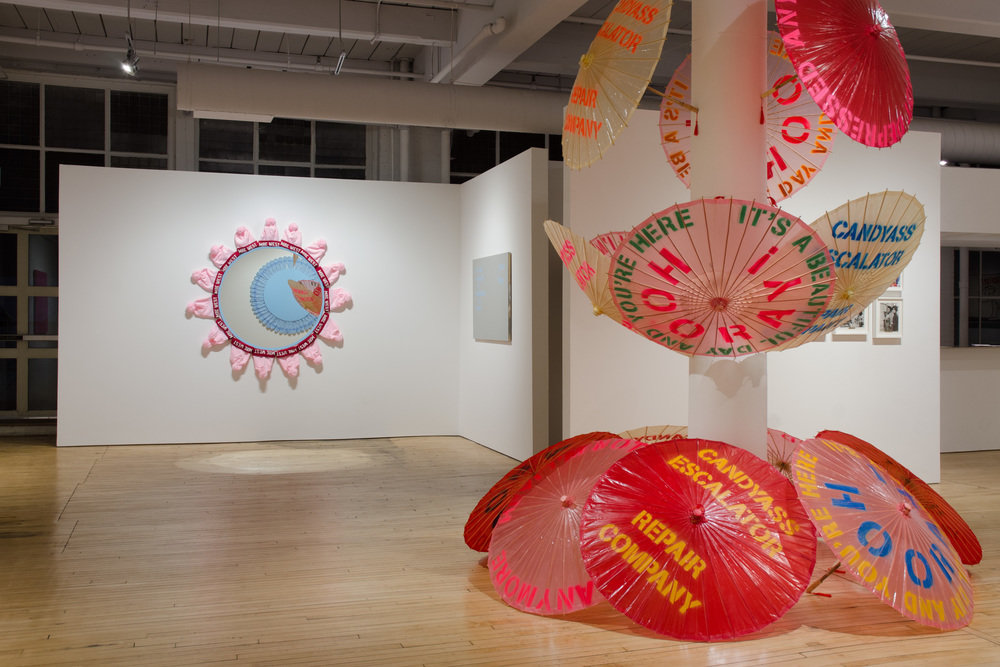
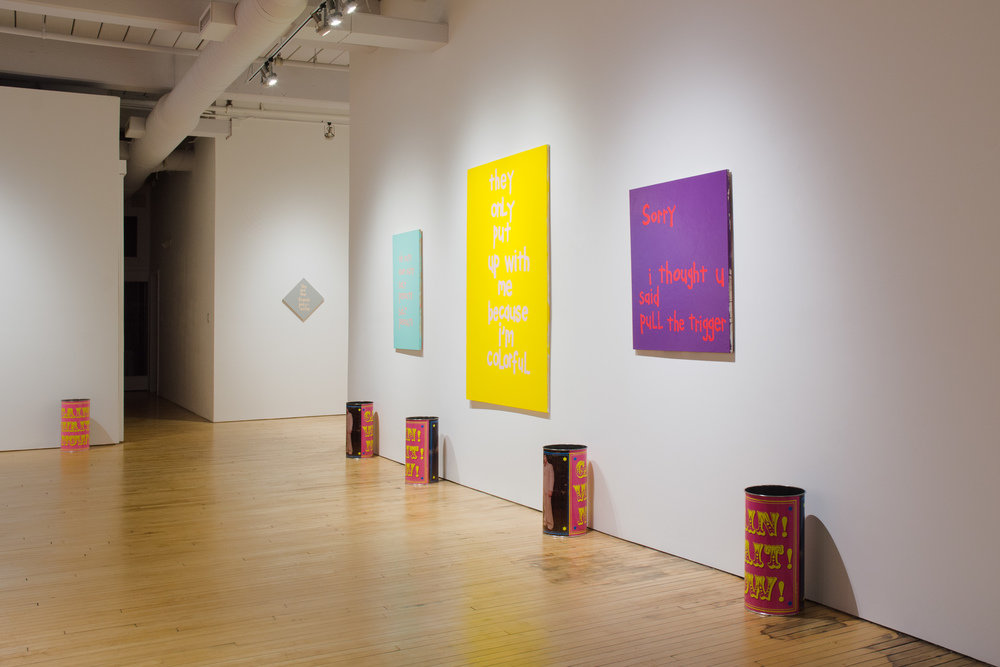
Feb 03 — Mar 31, 2018
Featuring work by: Cary Leibowitz
Reception: Saturday, February 3, 2018, 2-4pm
Happy days and good times. Really? Now? Happy Days. Good Times. Are they states of being or 1970s TV shows? Welcome to the ambiguous but endearing, high and low, humorous and poignant, sardonic sincerity of an exhibition by Cary Leibowitz a/k/a Candyass. Happy Days Good Times/Vicey Versy presents new paintings, photo-based collages, and serially produced art-objects-as-tchotchkes/tchotchkes-as-art-objects conceived by the artist for Fleisher/Ollman in conjunction with Museum Show, his first-ever comprehensive, internationally traveling, mid-career retrospective exhibition, on view at the Institute of Contemporary Art from February 2– March 25. Made in 2017-2018, most of the work has never been seen outside of San Francisco, which celebrated Leibowitz, the consummate New Yorker, to an unprecedented degree in 2017: the Contemporary Jewish Museum, San Francisco, organized and presented Museum Show and the gallery exhibition Prequel Nyquil was presented by INVISIBLE EXPORTS, Leibowitz’s New York gallery, as its first foray to the West Coast.
Leibowitz’s gallery representatives at INVISIBLE-EXPORTS capture Candyass the persona, which appears to be little different than Leibowitz the person: “For decades, Leibowitz has been the New York art world's master painter of abjection and neuroses, with mockingly self-abasing work that mixes elements of therapy, interrogation, social and institutional critique, and stand-up comedy routine,” they justifiably declare. “Leibowitz turns a critical eye on subjects of identity, modernism, the art market, queer politics, and kitsch—making the gestures and reflexes of self-doubt and social skepticism into pictures of self-awareness and radical and universal vulnerability.” Leibowitz’s critical eye is laser-focused, as well, on the circumstances of those who are not straight, white, or male—African Americans, other racial/ethnic/national/religious minorities, and women.
Leibowitz’s interior monologue of self-criticism and societal concern is the source of his word paintings and text-based collages, multiples, and prints. Newly emergent as a conscious type of painting, Leibowitz’s “mitten paintings” are one-color tondi radiating with cozy, wintry accessories knit with the names of Leibowitzian heroines and heroes. Among the honored: Mae West, Gertrude Stein and Alice B. Toklas, actress and producer Greta Gerwig, and the artist William N. Copley (a/k/a CPLY). Over the top and beyond the pale—literally? Perhaps. But, they are unabashedly sincere as expressions of admiration for society’s unflinching originals—particularly fearless women, timely in this “year (decade, century, millennium) of the woman.”
Other word paintings are not as lavish as the “mitten paintings” but are striking in form, scale, color, and message. They self-deprecate and profess existential pain. Darker and potentially broader commentary is communicated in Sorry/I thought you said pull the trigger, which reads as a throwaway excuse offered by an accident-prone goof and a statement about America’s pathological relationship with guns and the seeming trigger-happiness—or carelessness—within law-enforcement that’s led to the Black Lives Matter movement.
For the most recent work featured in the exhibition, Leibowitz gathered publicity images from Happy Days and Good Times and, in a boldly tiny act of collaged intervention, affixed the show’s titles to the images using adhesive tape from a lettering “gun.” The results, despite coming from precisely contemporaneous sources, appear entirely disparate. Those from Happy Days (1974–1984) are all-white in cast, Technicolor in tone, and escapist and nostalgic in their idealized, carefree, prosperous, and secure suburban 1950s setting. The photos from Good Times (1974–1979) are mostly black-and-white; even the single color photograph is drably monochromatic. The Good Times cast is uniformly African American. They and their urban-project-tower apartment appear worn and weary. The dichotomies—reality/escape; city/suburb; having/not having; black/white—seem more dissonant now than in the shows’ heyday.
Cary Leibowitz (b. 1963, New York) has been shown throughout the United States and Europe, including the Walker Arts Center, Minneapolis, MN; the Guggenheim Museum, New York, NY; the Whitney Museum, New York, NY; Art Institute of Chicago, IL; List Visual Arts Center, MIT, Cambridge, MA; The Jewish Museum, New York, NY; MoMA PS1, New York, NY; the Wexner Center for the Arts, Columbus, OH; the Andy Warhol Museum, Pittsburgh, PA; the Contemporary Jewish Museum, San Francisco; and the Philadelphia Museum of Jewish Art. Leibowitz is represented by INVISIBLE-EXPORTS.
Organized by guest-curator Matthew F. Singer in collaboration in collaboration with INVISIBLE-EXPORTS. Dr. Singer is an independent curator, writer, and educator.










